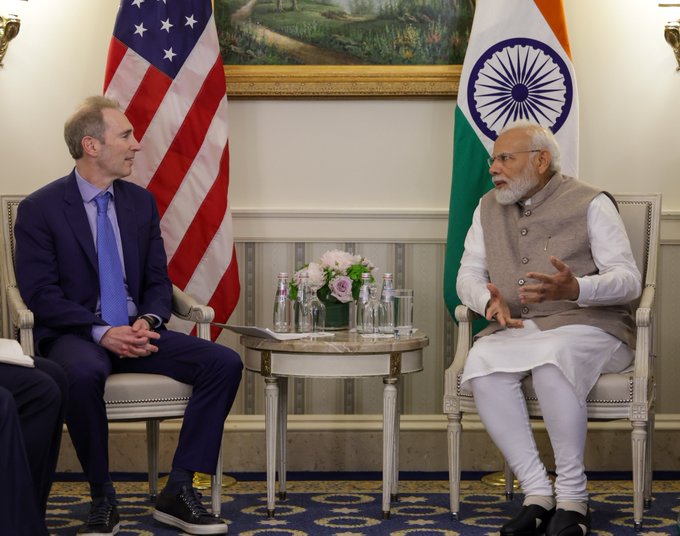Chinese foreign minister Wang Yi meets Doval, Jayashankar, discusses border issues
Mr. Doval holds talks with Wang Yi regarding the Ladakh standoff and the geopolitical implications of the crisis in Ukraine, among other key issues.

New Delhi: Chinese Foreign Affairs Minister Wang Yi held separate meetings with Indian foreign affairs minister S. Jayashankar and National security advisor Ajit Doval discussed the highest level of engagement between the two countries' standoff since 2020 soured ties. Wang Yi arrived last night in a surprise visit.
The Chinese delegation has held a meeting with Indian foreign affairs officials in Delhi. Mr. Jaishankar will later brief the media on his talks with the Chinese Foreign Minister.
The Chinese Foreign Minister's visit has been shrouded in secrecy, with no official word from either side. His arrival could be confirmed only through the tracking of his plane's flight path after it took off from Afghanistan on Thursday.
Mr. Doval holds talks with Wang Yi regarding the Ladakh standoff and the geopolitical implications of the crisis in Ukraine, among other key issues.
Wang Yi reached Mr. Doval's office for talks at around 10 am and discussions were held in a cordial atmosphere.
According to the NDTV report, some of the key points that were discussed included the need to take forward early and complete disengagement in remaining areas in Ladakh and remove impediments to allow the bilateral relationship to take its natural course.
Wang Yi first met with National Security Adviser Ajit Doval. They discussed the border row and the geopolitical implications of the Ukraine war says PTI report.
This is the first high-profile Chinese visit to India since the border clashes in Ladakh.
In the meeting between Mr Doval and Wang, both sides spoke about the need for early and complete disengagement in disputed areas and remove impediments to allow the bilateral relationship to take its natural course.
The Chinese delegation also invited NSA Ajit Doval to visit China to take forward the mandate of Special Representatives. To this, Mr Doval responded positively and stated that he could visit after immediate issues are resolved successfully between the two sides.

Following his meeting with Mr Doval, the Chinese Foreign Minister Wang Yi met his Indian counterpart S Jaishankar for talks at Delhi's Hyderabad House.
India and China have been holding high-level military talks to resolve the face-off in the remaining friction points in eastern Ladakh. Both sides had withdrawn troops from some of the friction points following talks at military and diplomatic levels.
NDTV report also stated that both Mr Wang and Mr Doval as they have been serving as the Special Representatives for boundary talks between the two countries.
The two officials also agreed that the continuation of the present situation is not in mutual interest. They agreed that the restoration of peace and tranquility will help build mutual trust and create enabling environment for progress in relations.
They also discussed the need to continue positive interactions at diplomatic and military levels. They agreed that actions on the ground should not violate the spirit of equal and mutual security.
On March 11, India and China held the 15th round of high-level military dialogue to resolve the pending issues in the eastern Ladakh region. However, there was no forward movement in the talks which were aimed at resolving the remaining issues.
The standoff between the Indian and Chinese militaries erupted on May 5, 2020, following a violent clash in the Pangong lake areas.
The face-off escalated after the Galwan Valley clashes on June 15, 2020. As many as 20 Indian soldiers and an unspecified number of Chinese troops were killed in the clashes.
Both sides gradually enhanced their deployment by rushing in tens of thousands of soldiers as well as heavy weaponry.
As a result of a series of military and diplomatic talks, the two sides completed the disengagement process last year in the north and south banks of the Pangong lake and in the Gogra area. Each side currently has around 50,000 to 60,000 troops along the Line of Actual Control (LAC) in the sensitive sector, says NDTV report.
Need to take early&complete disengagement in remaining areas to allow bilateral ties to take their natural course.Continuation of present situation not in mutual interest. Restoration of peace will help build mutual trust:Sources on talks meeting b/w Chinese FM Wang Yi &NSA Doval pic.twitter.com/BilLsysIBq
— ANI (@ANI) March 25, 2022

















